Analyzing data Math Worksheets for Ages 3-8
8 filtered results
-
From - To
Discover our engaging "Analyzing Data Math Worksheets" designed for children ages 3-8! These resources help young learners develop essential math skills by interpreting and analyzing various data types, enhancing their logical thinking and problem-solving abilities. Our worksheets include fun activities such as sorting, graphing, and understanding charts. Tailored to align with early education standards, these interactive exercises make learning data analysis enjoyable and accessible for young minds. Whether in the classroom or at home, our printable worksheets are a perfect way for kids to strengthen their analytical skills while building a strong foundation for future math learning. Dive into data today!
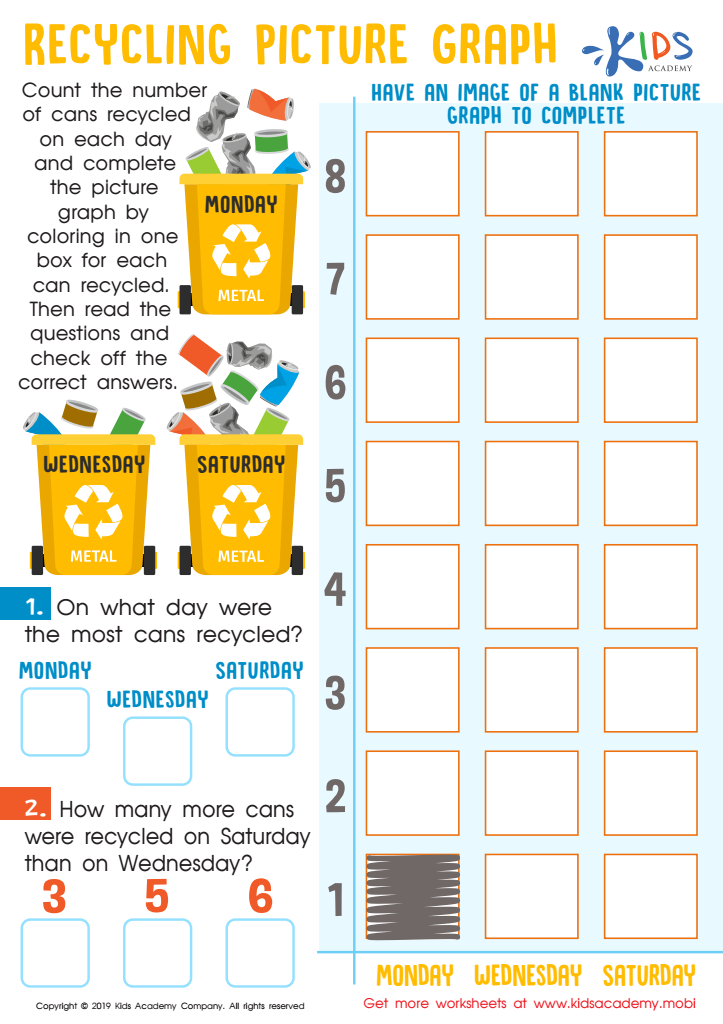

Recycling Picture Graph Worksheet
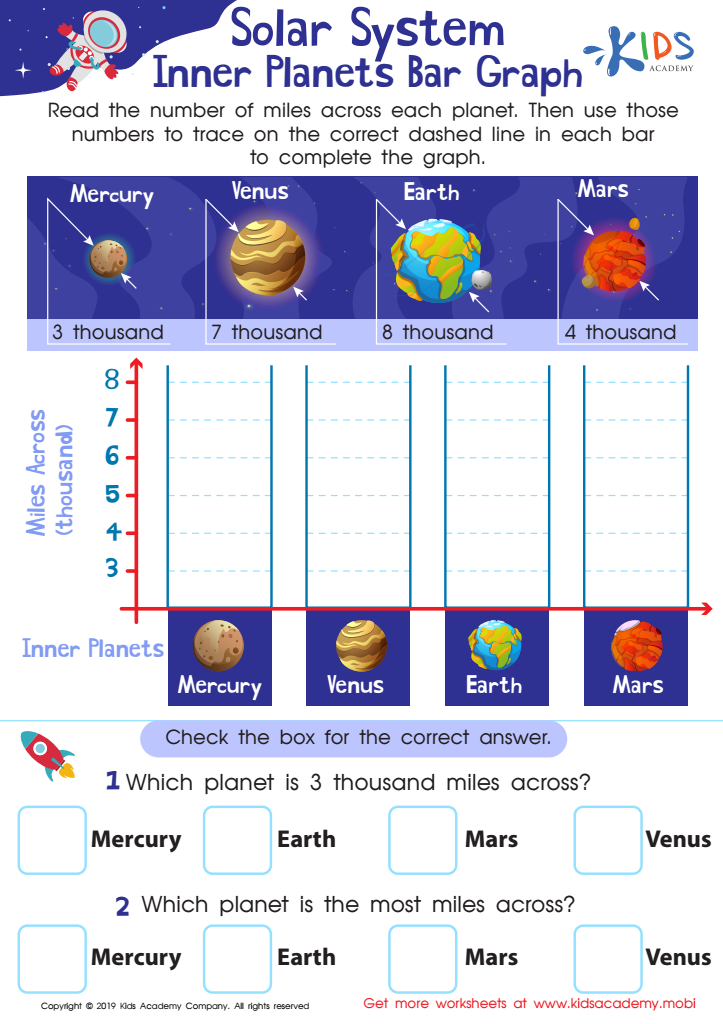

Planets Bar Graph Worksheet
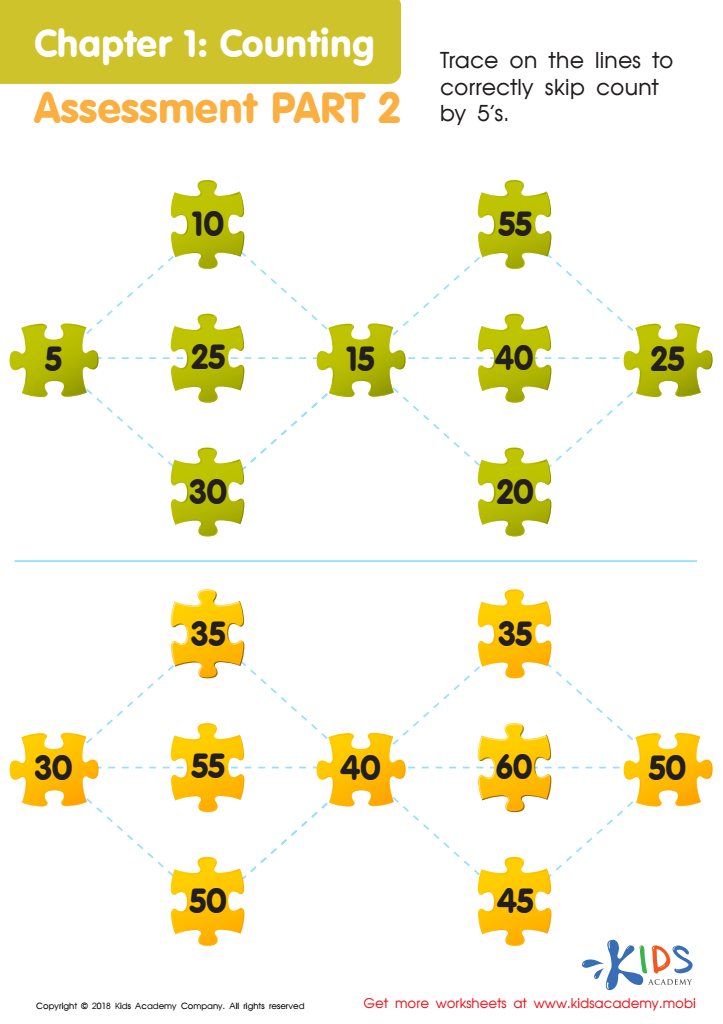

Counting: Assessment 2 Worksheet
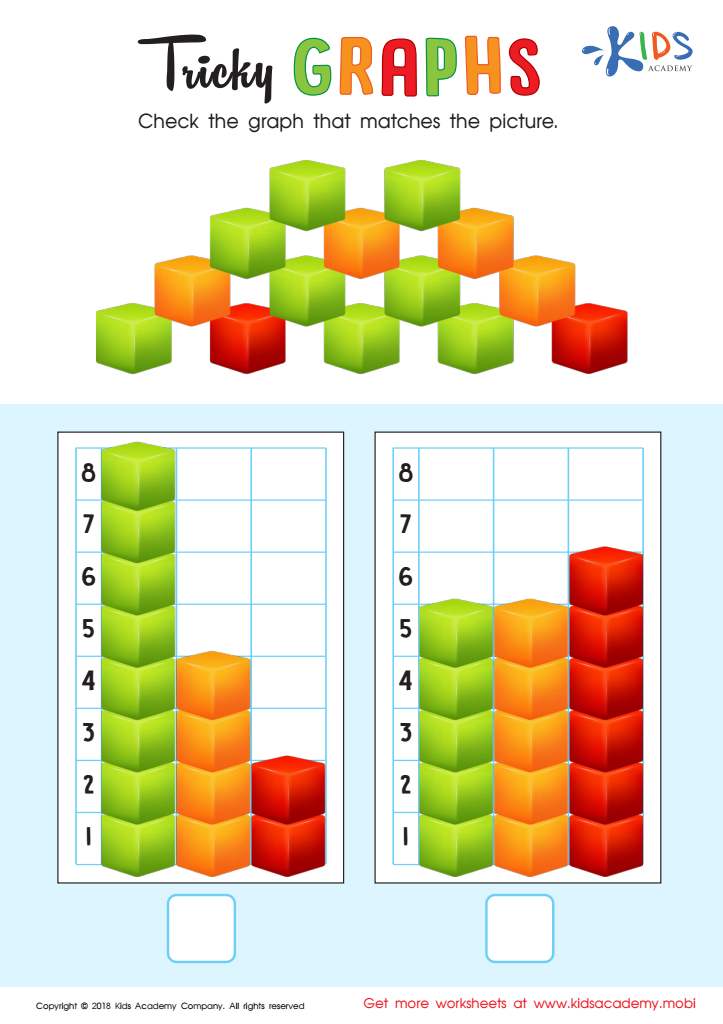

Tricky Graphs Worksheet
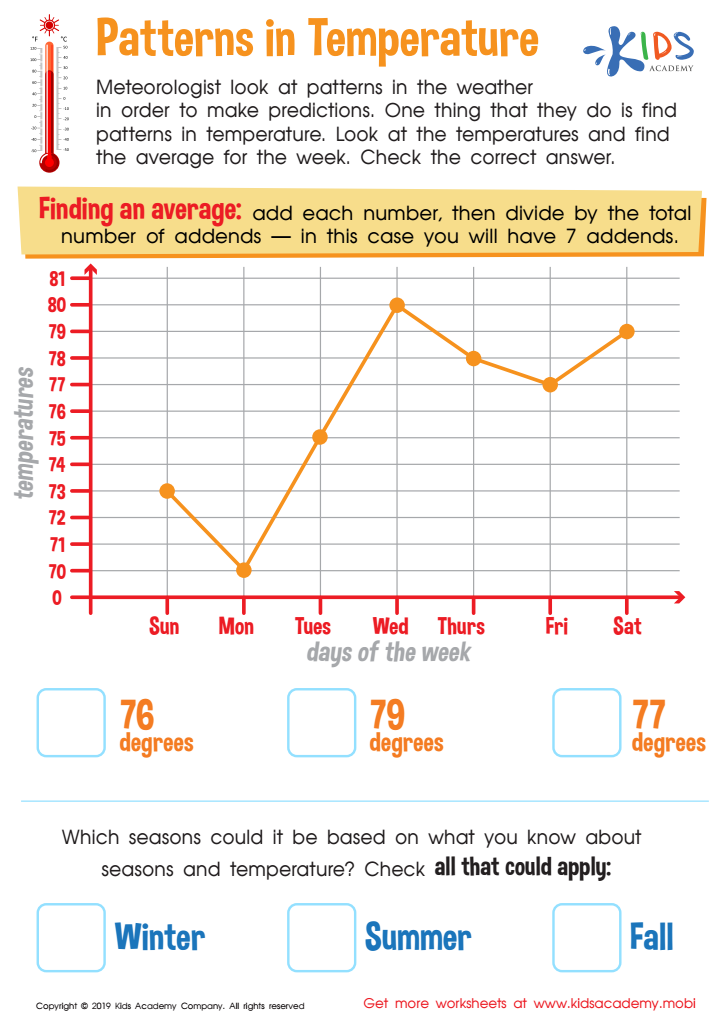

Patterns in Temperature Worksheet
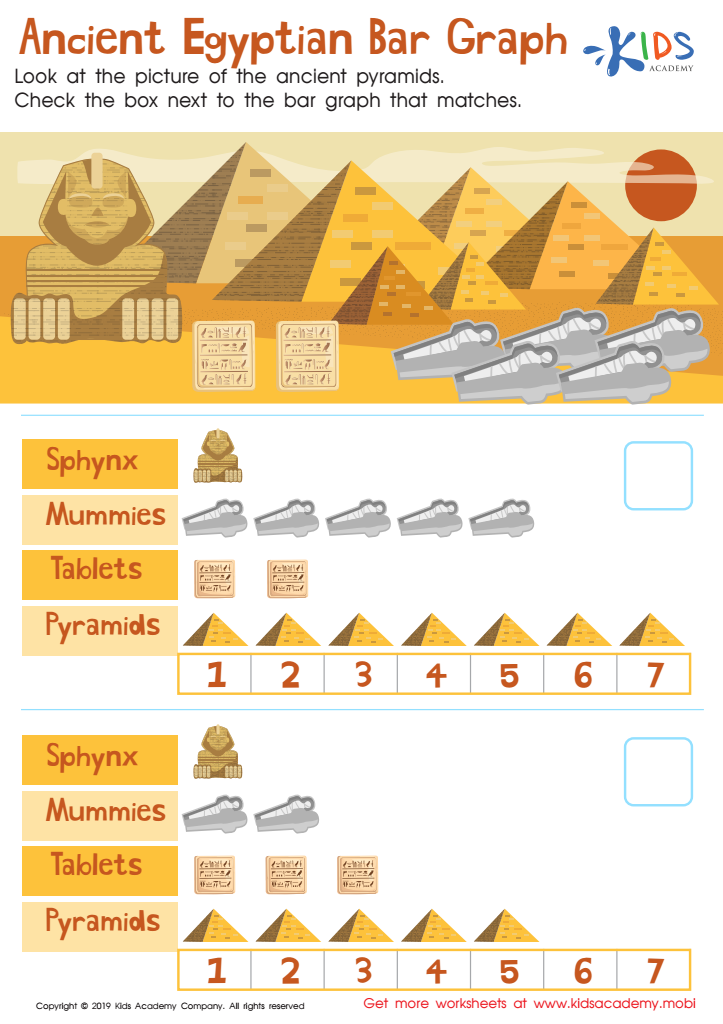

Egyptian Bar Graph Worksheet
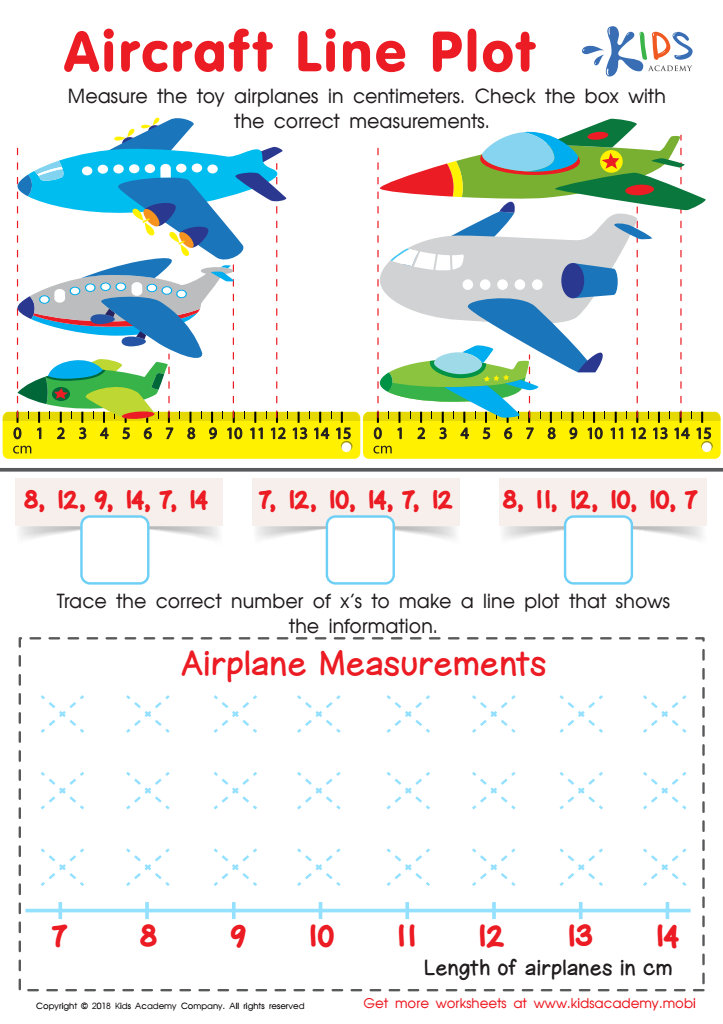

Aircraft Line Plot Worksheet
Analyzing math data for children aged 3-8 is crucial for several reasons. At this early age, children are developing foundational skills that will support their future learning. By examining math data, parents and teachers can gain valuable insights into a child’s understanding of mathematical concepts, such as counting, number recognition, and basic operations. This data-driven approach allows for informed instructional decisions tailored to individual learners’ needs, ensuring that each child receives appropriate support.
Furthermore, early math skills are strongly correlated with later academic success, making early intervention even more critical. Analyzing math data can help identify gaps and strengths in a child’s learning trajectory, enabling targeted interventions that promote confidence and competence in math.
Additionally, engaging with data fosters a collaborative learning environment where parents and educators can communicate effectively about a child's progress. This partnership not only supports sustained improvement but also reinforces the value of education in the home and classroom.
In summary, a focus on analyzing math data for young children empowers adults to nurture their mathematical development, create personalized learning experiences, and ultimately lay the groundwork for enduring academic achievement and a positive attitude towards math.
 Assign to My Students
Assign to My Students























